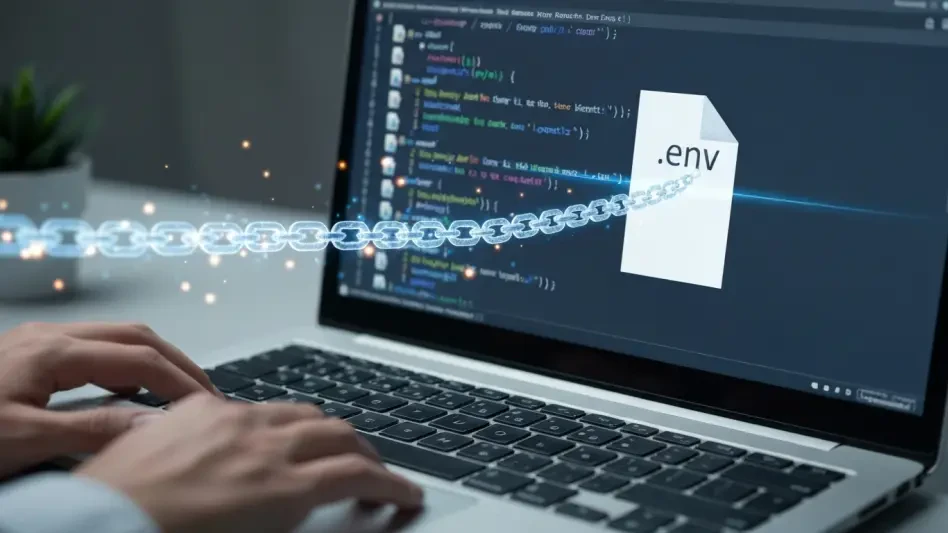In recent years, cybersecurity breaches have emerged as a pressing concern for organizations, prompting an urgent evaluation of existing security practices. One case illustrates the vulnerabilities behind passwords that are either too weak or inadequately managed. Paradox.ai, recognized for its AI-driven hiring solutions utilized by leading global corporations, experienced a significant security breach that exposed weaknesses resulting from poor password management. Influential companies, including McDonald’s, utilize Paradox.ai’s systems, which placed millions of job applicants’ personal data at risk. The incident centered around a predictable password, “123456,” which allowed unauthorized access to a Paradox.ai account associated with McDonald’s hiring process. The breach exposed the personal details of 64 million applicants, although the company assured that crucial identifiers like Social Security numbers were not affected. Nevertheless, this scenario underscores the persistent challenges in maintaining robust cybersecurity frameworks.
Understanding the Root Causes
The vulnerability uncovered by security researchers Ian Carroll and Sam Curry raised crucial questions about Paradox.ai’s cybersecurity protocols. The situation with Paradox.ai is not an isolated instance but rather a reflection of system-wide challenges that organizations face in managing digital security. A particular breach sprang from a developer’s computer in Vietnam, infected with a password-stealing malware known as “Nexus Stealer.” This malware is notorious for harvesting form data and stealing passwords, some of which end up sold on cybercrime forums. The breach prompted a broader exposure, revealing weak and reused passwords that Paradox.ai developers used. These passwords, characterized by basic seven-digit numerical sequences, were particularly vulnerable to brute-force attacks. Such vulnerabilities are compounded by the typical carelessness among users in creating and managing passwords, emphasizing the need for enhanced training and awareness.
Despite assurances from Paradox.ai that these were outdated, “legacy” passwords, the very fact that they were accessible points to deficiencies in security oversight. The incident illustrates that while Paradox.ai insists on having frameworks to limit access to sensitive data, negligence in removing obsolete data and passwords can pose significant risks. References to guides like the Hive Systems password-cracking capabilities highlight the ease with which attackers can circumvent weak defenses, further pressing the need for companies to employ more rigorous security measures. Shifts toward stronger, multi-faceted authentication have stemmed some vulnerabilities, but complete reliance on passwords alone remains precarious. In acknowledging such risks, organizations are urged to rethink their approaches, fostering a culture of vigilance and compliance that prioritizes cybersecurity in every operational facet.
The Complexity of Modern Authentication Systems
Paradox.ai’s experience illustrates the complexity of achieving a secure authentication system, especially when incorporating single sign-on (SSO) strategies. SSO is widely championed for its potential to streamline user authentication by allowing access to multiple systems with a single set of credentials. However, it raises new challenges if not implemented with caution, as an attack on this single point can have cascading effects. For Paradox.ai, this was highlighted when the compromise of a Vietnamese developer’s credentials and authentication cookies inadvertently exposed several services. These credentials allowed unauthorized access across platforms, such as Okta and Atlassian, with cookies possessing alarming expiration validity. This multifaceted attack vector underscores the inherent vulnerability of SSO when not fortified with robust multi-factor authentication and ongoing monitoring.
Infostealer malware facilitates these breaches by capturing stored passwords and credentials users input during browsing activities. The breach experienced by Paradox.ai illustrates how easily such threats can capitalize on employee behaviors that fail to conform to cybersecurity best practices. Employees downloading pirated software often unwittingly invite malware onto systems, which subsequently infiltrates networks and compromises sensitive data. The reliance on SSO further exacerbates these risks as attackers gain means to exploit a wider range of services through compromised credentials. Thus, understanding the dual-edged nature of modern authentication and instilling best practices in employing these systems remain critical to strengthening security postures.
Lessons in Cybersecurity Awareness and Training
This case reflects broader cybersecurity challenges affecting many technological companies today, emphasizing the role of employee awareness and vigilance. Paradox.ai’s breach spotlights the fundamental need for organizations to invest in comprehensive cybersecurity training, creating a workforce capable of identifying threats and adhering to best practices. The failure to integrate robust password management—as evidenced by simplistic and recycled credentials—exposes organizational vulnerability. A critical takeaway is the importance of consistently auditing security practices and reinforcing policies around password complexity, multi-factor authentication, and monitoring user behavior. Complacency in any of these elements could result in breaches with severe repercussions.
Beyond password management, instilling disciplined behavior in cybersecurity is crucial. Employees must understand the risks associated with unauthorized downloads, ensuring all software and content derive from reputable sources. Routine training can transform awareness into action, encouraging compliance and accountability at every organizational level. Establishing a robust culture of cybersecurity helps safeguard against human error, a leading cause of data breaches in most sectors. By learning from Paradox.ai’s experience, organizations should dedicate efforts toward a sustained revamping of their cybersecurity frameworks, prioritizing prevention over remediation to navigate today’s threats.
Revamping Cybersecurity Frameworks
Paradox.ai’s breach called attention to the continuous evolution of cybersecurity threats and the responsibility organizations bear in striving for robust defenses. This breach serves as a stark reminder that up-to-date regulations, such as ISO 27001 and SOC 2 Type II, do not guarantee immunity but rather should act as components of comprehensive security strategies. Paradox.ai’s swift internal modifications, ensuring contractors aligned with their security protocols, signify a step towards correcting concerns. Enforcing enhanced password policies can significantly curtail security risks, coupled with more proactive auditing to uncover and address vulnerabilities.
The complexity of contemporary cyber threats demands a proactive stance in implementing multifaceted security measures. Adopting more stringent password policies, encouraging the use of password managers, and using multi-factor authentication are integral steps. Furthermore, frequent and transparent audits expose potential oversights, ensuring constant vigilance against emerging threats. To truly safeguard sensitive data, organizations must institutionalize a cultural pivot towards cybersecurity awareness, embedding these principles into the business fabric. This foresight will not only protect sensitive data but maintain trust with consumers reliant on confidence in products and services.
Reflecting on Cybersecurity Lessons
In recent times, cybersecurity breaches have become a critical issue for many organizations, leading to a necessary reevaluation of security protocols. A notable case highlights vulnerabilities rooted in weak or poorly managed passwords. Paradox.ai, known for its AI-driven hiring solutions and employed by major global firms, encountered a serious security breach due to poor password practices. Companies like McDonald’s, using Paradox.ai’s systems, risked exposing personal information of millions of job applicants. The breach involved a predictable password, “123456,” enabling unauthorized access to a Paradox.ai account linked to McDonald’s hiring system. Consequently, personal information of 64 million applicants was exposed, but crucial data like Social Security numbers remained secure. This incident reveals ongoing challenges in sustaining effective cybersecurity measures and emphasizes the need for organizations to strengthen password management and overall security strategies to avert future breaches.








